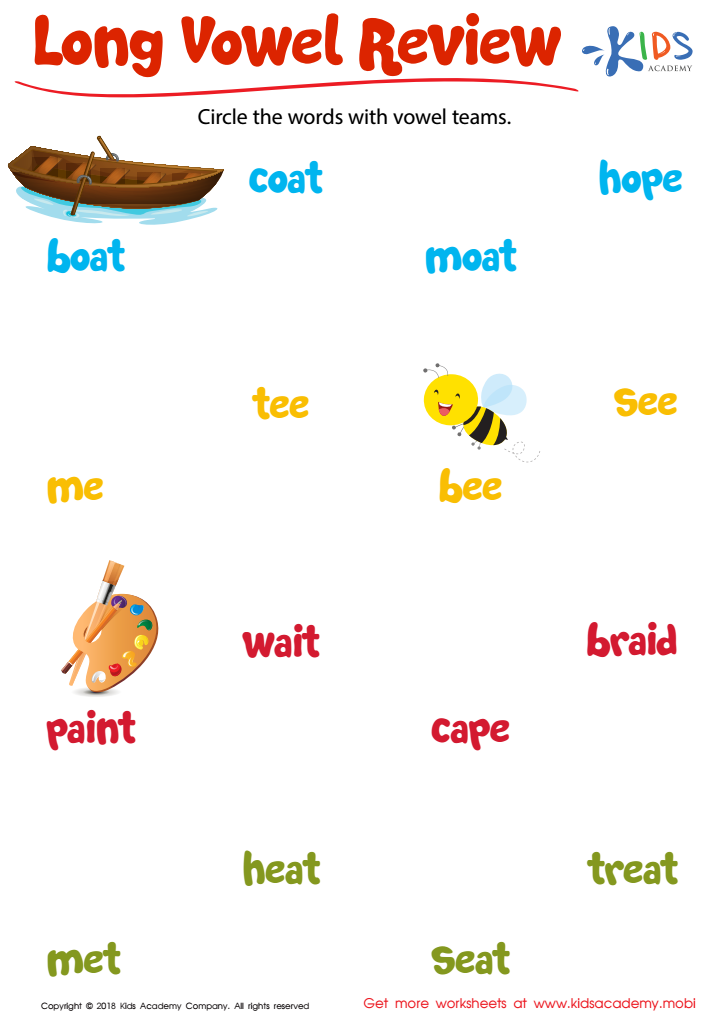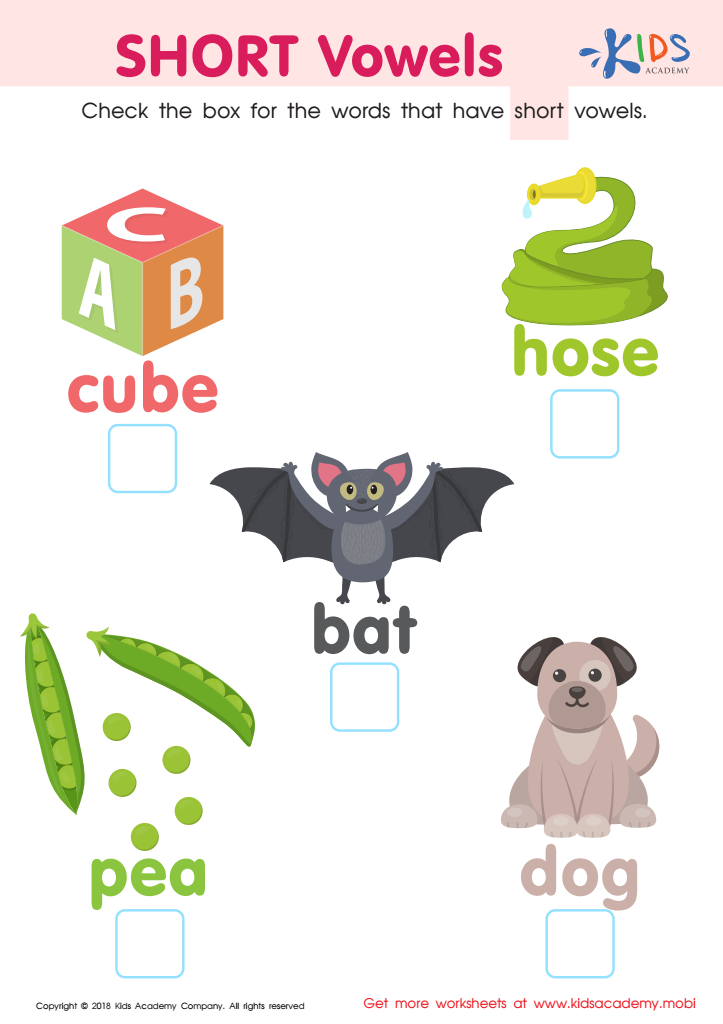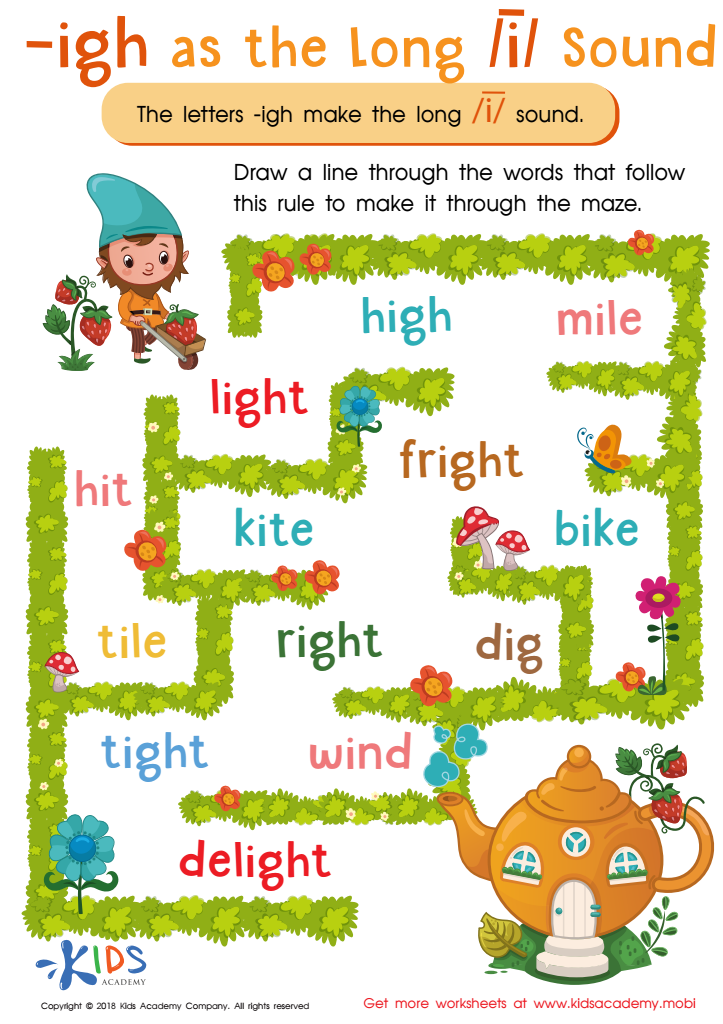Phonics practice Normal Vowels and Consonants Worksheets for Ages 3-7
4 filtered results
-
From - To
Unlock reading success for young learners with our Phonics Practice Normal Vowels and Consonants Worksheets, designed for ages 3-7. Perfect for early graders, these engaging worksheets focus on mastering vowel and consonant recognition and phonemic awareness. With vivid illustrations and fun activities, children will delight in learning the foundational skills needed for fluent reading. Ideal for parents and educators, these printables provide effective, interactive education at home or in the classroom. Support your child's literacy journey and build a strong phonics foundation today! Explore our collection and watch little readers grow confident and capable.


Long Vowel Review Worksheet


short vowels Worksheet


Short Vowel Eggs Worksheet


Reading: IGH as Long I Worksheet
Phonics practice with normal vowels and consonants is crucial for children aged 3-7 as it forms the foundation of reading and writing. At this developmental stage, young minds are highly receptive to learning language patterns and sounds. Phonics instruction helps children understand the relationship between letters and sounds, an essential step in decoding words. This skill is known as phonemic awareness, which is vital for early literacy.
For parents and teachers, incorporating regular phonics practice into daily activities can significantly impact a child's ability to read fluently. When children recognize vowels and consonants, they start to blend these sounds to form words, enhancing their reading confidence and comprehension. Early phonics practice also supports vocabulary development, enabling children to understand and use a broader array of words.
Furthermore, proficiency in phonics supports spelling and writing. As children grasp letter-sound correspondence, they become better equipped to spell words independently, facilitating their writing abilities. A strong phonics foundation also builds listening skills, aiding in understanding spoken language.
Fostering a positive learning environment through phonics ensures that children develop a love for reading and learning, ultimately contributing to their overall academic success. Thus, parents and teachers should prioritize phonics practice to nurture a strong foundation for lifelong literacy skills.
 Assign to My Students
Assign to My Students









